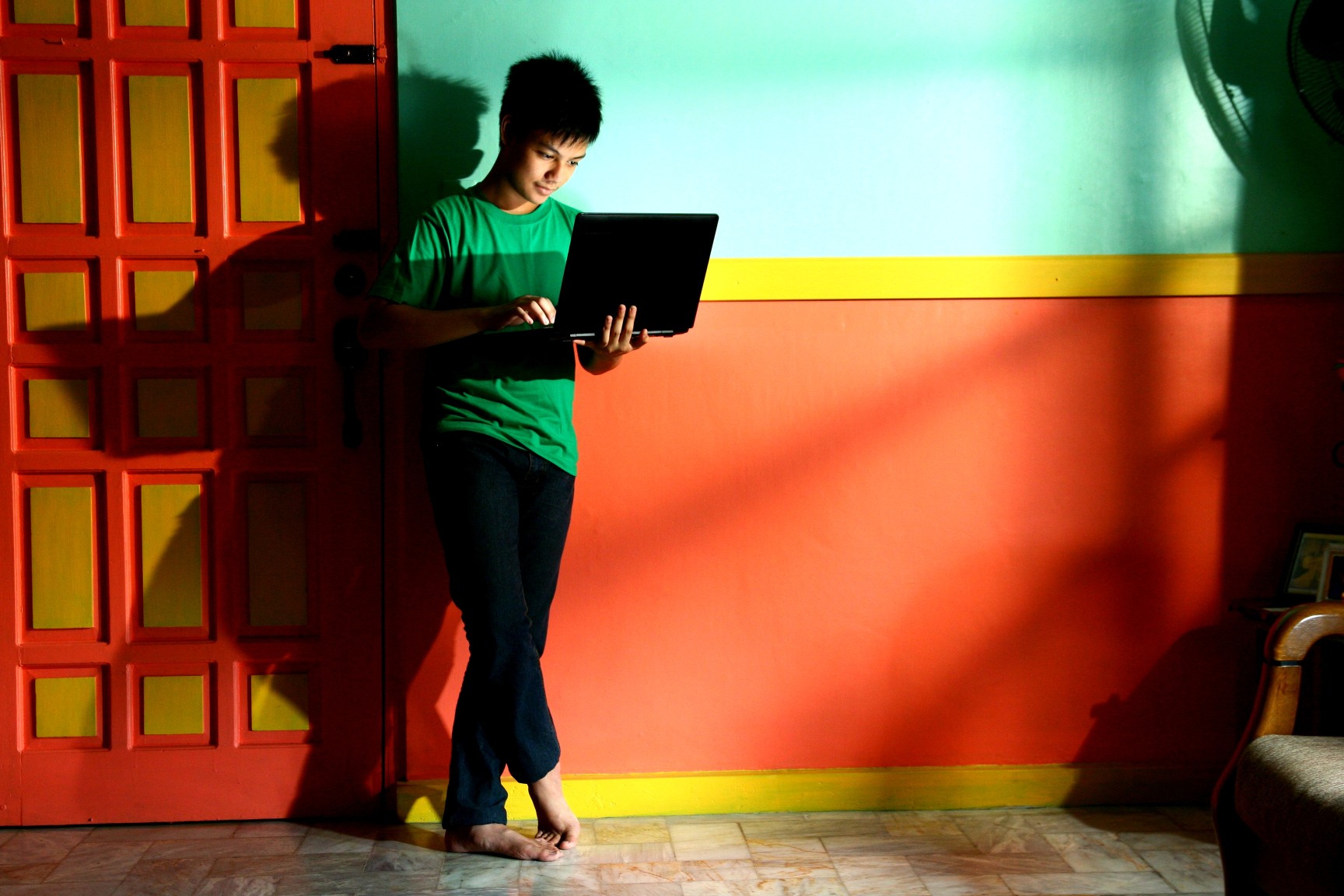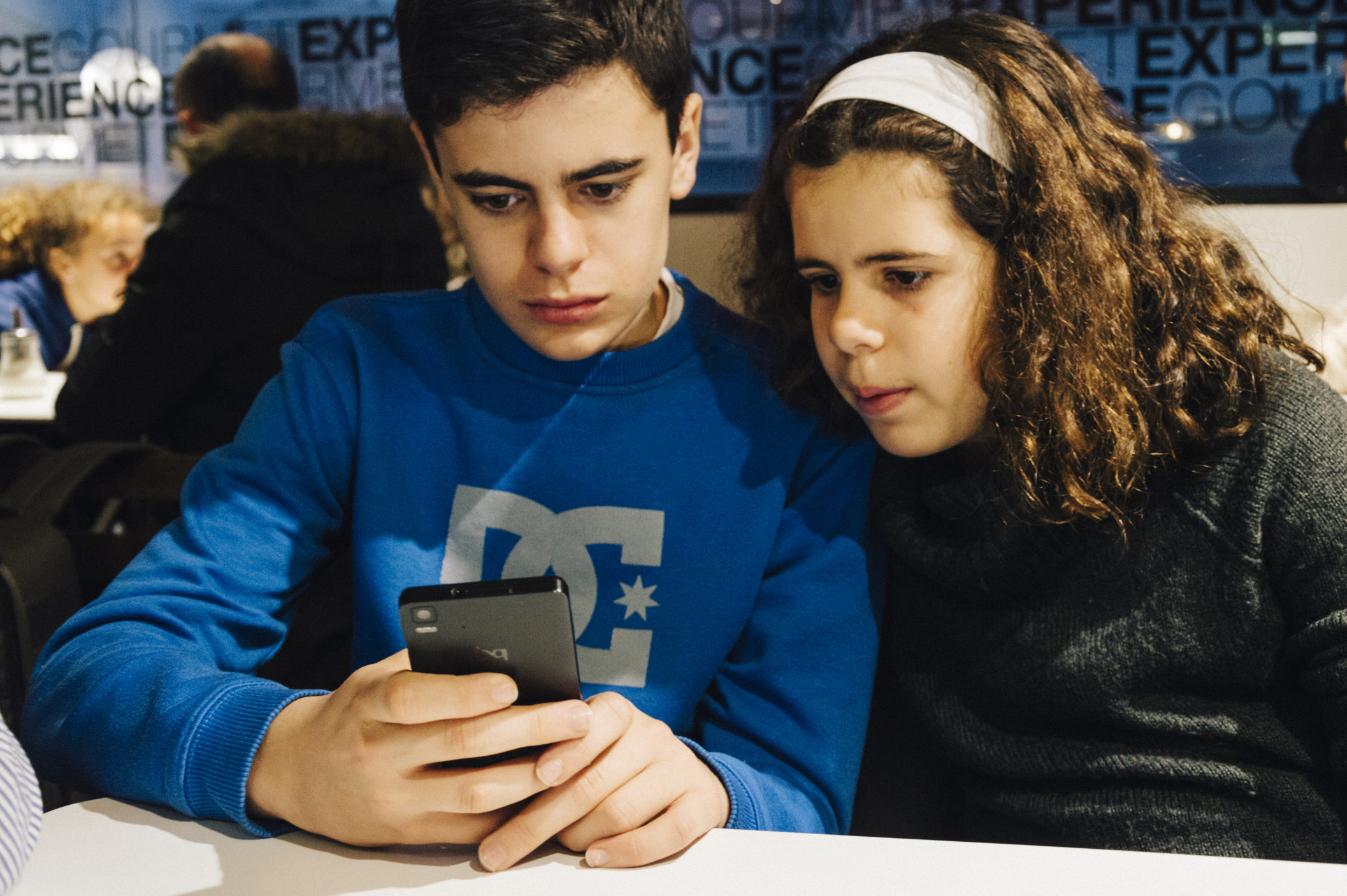
Some kids are thriving with online education this year. Others, not so much. While it’s a new format for all of us, people are finally getting adjusted. However, while it’s good for kids to have a safe alternative, there’s a lot of issues with kids having more screen time. And, with many parents also working from home, it may be somewhat tough to monitor what your child is actually doing.
Online bullying is still a fairly new concept for many parents. That’s likely because many of us didn’t grow up with social media. If we needed information about something for school, we went to the library. We also frequently used a card catalog to figure out what books were available. Even worse, it often took us a long time to navigate what book had what information in it. These days, search engines have taken over — and it’s made finding information so much easier.
But, the social aspect of the internet may still be tough. Unlike verbal bullying, negative words shared online may last forever. And, it can be tough for kids to know what to do in a situation where they’re bullied online. Luckily, Stephanie Newman, Ph.D., knows a lot about all types of bullying. While she’s authored many books on the topic, her most recent title is called Barbarians At The PTA — and discusses ways for both teens and adults to handle bullying. LittleThings got to chat with her, and she has some great information on how to deal with such a sensitive yet serious topic.
Remind your children that there are many layers to bullying.

Bullying is mean, and bullying hurts feelings. But often, bullies aren’t acting out because they don’t like their victim. Usually, there’s more going on. “Bullies often behave aggressively in an attempt to deal with their own problems or with an underlying insecurity,” states Dr. Newman. “Adolescents who feel anxious or vulnerable — say they are having trouble learning or feel awkward in their own skin, or there is something going on at home like a family member is ill or parents are going through a divorce or financial difficulties — any of these reasons might cause someone to lash out. Aggression is often disguised as fear. Kids who feel vulnerable and don’t know how to deal with their fear or intercultural often act on it by behaving aggressively and targeting weaker kids.”
That means that preparing your child for ways to respond may end up being beneficial. A simple, calm “Please don’t talk to me like that” may help your child learn to stand up for themselves.
Remember that bullies don't necessarily need to be friends.

If you think about it, adults often partake in online bullying themselves. Any time someone leaves an unnecessary comment to someone else online, it can be taken the wrong way. Political articles often can’t go unshared without a bit of bullying in the comments. It’s a sad reminder that bullying can happen anywhere, and, with anyone.
Multiplayer games online often include plenty of strangers with a lot to say. “Popular games [like Fortnite] allow kids to chat with other players they don’t know,” says Dr. Newman. “Parents and caregivers should know that gaming with strangers brings risks. It’s important to set ground rules where technology and screen time are concerned.”
It may be tough to talk to your children about limits, but it’s the right thing to do. Setting rules up as early as possible will make the conversation easier to have.
Talk to your child about the dangers of sending explicit photos.

It’s amazing that everyone out there has a camera in their pocket, but that also leads to a lot of consequences — especially for teenagers. Many relationships are built around sexting, which means that a lot of photos are circulating that may lead to bullying down the road.
Back when you were a child, you likely never thought you’d one day have to school your own children on sexting. And that’s because back in the day, it wasn’t really a popular concept. But, photos like these have consequences that extend past embarrassment and bullying. If the subject is under 17, every photo is illegal and can lead to some serious charges.
Dr. Newman gave some good prompts on how to set these boundaries with your own children.
“Do not take compromising photos. Ever. You can never send photos of your own or forward photos you have received,” she said. “Be clear about the consequences: ‘You can get in trouble just for forwarding a compromising photo of another kid; it’s a crime.'”
Know your child's limit.

Nobody likes to be bullied, but some kids can handle it better than others. In situations where your child is feeling sad due to the actions of another child, it’s important to know their limits. You want to make sure that you interfere before their lives become unnecessarily difficult.
“When another child is picking on yours — whether physically (males are more likely to use force) or by exclusion (the preferred form of social aggression for females), an adolescent should try to either ignore them or handle it themselves by responding in kind,” suggests Dr. Newman. Based on school mostly being online, it’ll be far more popular for students to pick on others through text or video this year.
“If someone fights back, or if a bully doesn’t get a rise, they often move onto something else. If a student is really feeling threatened, physically or emotionally, and has tried to handle it on their own, it’s time to get help.”
As parents, you should try to do your research before the situation escalates. That way, you’ll know the right people to call before things get out of control.
Take action if your child is the online bully.

Nobody wants to admit that their child is making others uncomfortable. But if you recognize that your kid is bullying others online, it’s important for you to put an end to it. Luckily, there are plenty of methods that Dr. Newman suggests.
“Talk to your child and find out what the underlying cause is,” she said. “Is your kid afraid of something, worrying about your family situation, or unable to handle social challenges or school work? Provide support and love and allow your kid to build resilience so they don’t need to act out.”
Losing special privileges can also be beneficial if communication doesn’t work. “If all else fails take away access to phones, computers, and social media while engaging in an ongoing conversation about what is really going on,” she added. “Provide your child with support and teach them coping mechanisms to use when they are anxious, sad, or feel vulnerable.”
Feel comfortable with the idea of online monitoring.

As a child, I was so terrified that someone would invade my privacy. I didn’t have much to hide and definitely didn’t get into situations where I was bullying others. But, privacy is a tough thing to maintain with children. You want them to be smart and safe online, but also don’t want to make them feel as if they have no freedom.
“Don’t resort to spyware without talking to your child,” Dr. Newman said. “That type of surveillance interferes with trust and can work against parents. Instead, explain that technology allows you to interact with strangers and this carries inherent risks. Build trust with your child by discussing how to use technology safely. Help them make good choices by modeling desirable behavior. Put your devices away. Show them it’s important to do other things.”
Many habits start at home. If you’re constantly checking your phone while you could be engaging your child face-to-face, you may be unknowingly contributing to the problem.
Set time limits to avoid bullying at night.

Many people like to fall asleep while scrolling through Facebook. For kids, this is a bad idea. And if they had a bad day, don’t know how to properly regulate their mood, or are just plain tired, their interactions online may seem meaner than intended.
It’s OK to set time limits on devices. “Take screens and devices away at bedtime,” suggests Dr. Newman. She believes doing this can help promote healthy sleep patterns.
“Many an adolescent has been woken up at 2 am by an incoming text that left them unable to fall back asleep. Establish house rules: no cell phones in bed and no laptop in your room after lights out.”







